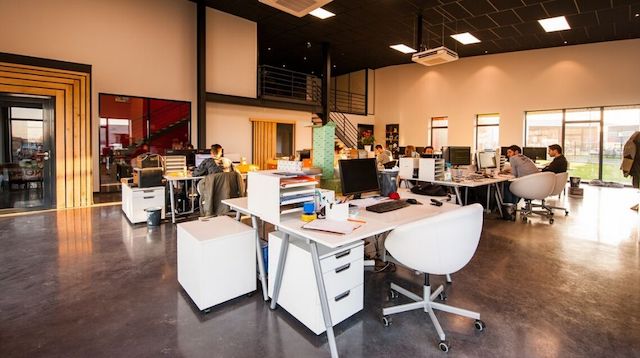With India being the second-fastest growing economy in the world, there has been a rise in demand for commercial property in the last few years. But, it is not easy for a small business to own property, as it requires more money than most young firms have on hand. Hence, there is a need for a commercial loan to help make the purchase possible.
Be it an office space, garage, warehouse or a shop — you need space for establishing and growing your business.
Though lenders these days are quite aggressive in giving residential home loans, commercial real estate builders are witnessing multiple rounds of document scrutinies and delays of 60 to 90 days in the approvals due to the high risk involved.
In this article, we are going to delve into the requirements to avail a loan for purchase of commercial property. Following these tips may help you get quick loan approval.
6 factors that affect your commercial loan application
By knowing what the bank will be looking for, you can improve your chances of a successful application. Here are the basics:
- The financial strength of the individual/business.
- Technical evaluation.
- Approvals.
- Area.
- Builder reputation.
- Collateral security.
Businesses can use a commercial loan for:
- The purchase of under-construction/ready-to-occupy office space
- The purchase of under-construction outlet/ready-to-occupy retail outlet
- Renovating an existing commercial space
With a commercial property loan, businesses can use their cash flow to repay the loan in instalments over the tenure.
Before we get into our list of factors, let us share a few relevant facts about commercial loans.
The facts about loans for purchase of commercial property

Photo: Smartworks Coworking on Unsplash
Commercial loans are different compared to residential loans. However, there are some common standards and features between the two, which we are going to discuss below:
Loan-to-value ratio
With a typical home loan, lenders are willing to fund 85 to 90% of the home’s value. But in the case of commercial office space, lenders will only fund 55 to 60% of the property value.
You must pay at least 40% of the property value from your own pocket.
While selecting the property, you should keep this loan-to-value ratio in mind, as you must have sufficient funds to purchase the property — even with loan funding.
Interest rate
Banks charge an interest rate that is one to two percent higher for commercial property than for residential home property. You should mind the interest cost of the loan, as it will have a direct impact on the profit and loss of your business.
Processing fees
The bank will charge you processing/up-front fees of around one to two percent. There can be some discount on the fees, depending on the credit profile of the borrower, so be sure to ask.
Loan term
Where residential home loans can go up to 30 years, commercial loans have a maximum tenure of 15 years. Most commercial loans are given for a period lasting fewer than 10 years.
Security
Banks keep the mortgaged property as the primary security. In case the borrower is unable to repay the loan, the bank has the right to sell the property and recover the outstanding loan balance.
Documentation
There is a standard set of documents that banks execute with the borrower. It includes the:
- Know Your Customer (KYC) of the borrower
- Income proof documents
- Property documents
- Copy of approvals for the property
- Execution of loan agreement and other undertakings with the bank
Be sure to have all documents ready to go before you approach a lender.
What to know: factors that affect your loan approval

There are some important parameters that can make your application stronger and get it approved at the earliest. Use the below-mentioned checklist to increase your chances of timely approval.
1. The financial strength of the individual/business
Banks like their borrowers to have a good credit score and a consistent and sufficient source of funds to make loan payments. To ascertain your credit strength, banks mostly ask for your:
- Business bank account statements
- Income tax returns
- Financial statements
The better your credit score and more regular your cash inflows, the higher the chances of getting credit from a bank.
2. Technical evaluation
Banks keep the mortgaged property as their primary security with an intention to sell the property and settle their dues in case you are unable to repay the loan.
It is mandatory for the bank to evaluate the property that you are planning to purchase.
You can improve your chances of receiving loan approval by ensuring the building meets all the technical requirements including fire safety equipment, shafts, lifts and emergency exits.
3. Approvals
Banks require the borrower to submit all the approvals that are applicable on the property up to the date of applying for the loan. If there is any pending approval, then it is a risk on the part of the borrower as well as the bank. The bank wants a clean and marketable property as the primary security.
4. Area

Banks tend to finance only the properties which are over a minimum size in terms of the area. You should check about this minimum area with your preferred bank before selecting a property and making the loan application.
5. Builder reputation
For an under-construction property, builder reputation matters a lot for the bank. A property being developed by a reputed builder who is known to deliver the projects on time stands a better chance of being financed by the bank.
6. Collateral security
If you are seeking a loan for an under-construction property, you can also strengthen your application by offering additional collateral security to the bank. The offered collateral can be any other mortgage-free land or property that you already own. It helps to offer high-security cover for the lender and reducing their risk in the loan.
Editor’s note: Easily manage multiple websites with our free tools — even update core, plugins and themes for all your sites with one click.
It takes funding to grow
A growing business’s foremost requirement is to own a work area which is:
- Safe
- Of sufficient size
- Convenient for the employees and customers
Businesses in their early days often opt for coworking spaces as a pocket-friendly solution. But as the company grows, it requires more space for their employees and customers.
Professional businesses like dentists, doctors and salons require a dedicated space for their operations from day one.
But since commercial property is a risky investment, a commercial loan can be difficult to get. But with all the tips shared in the article, you should be able to improve your chances of getting the commercial property loan you desire.
The above content should not be construed as financial or tax advice. Always consult an accountant or tax professional regarding your ability to qualify for loan funding.







